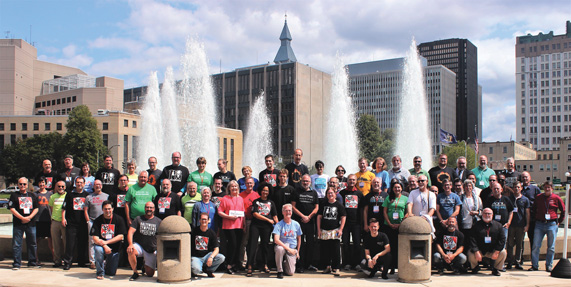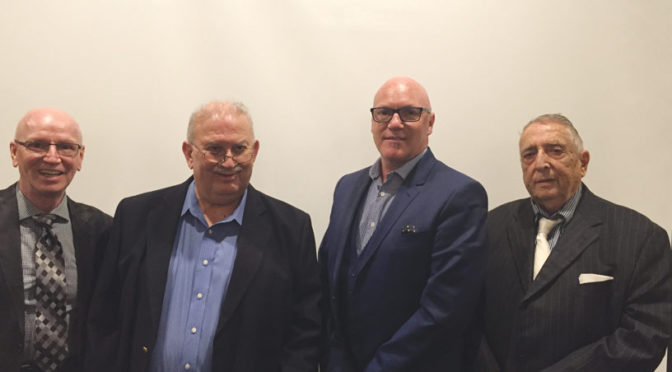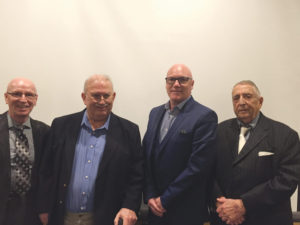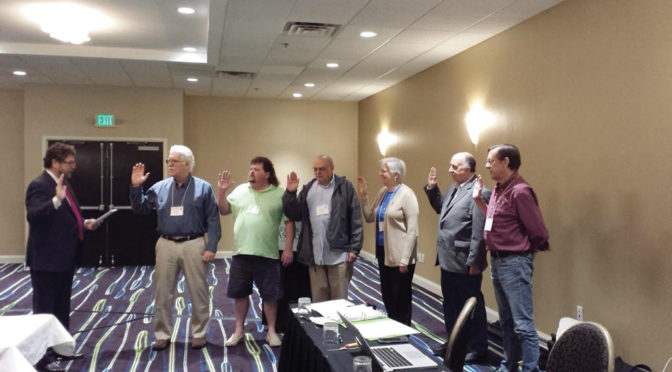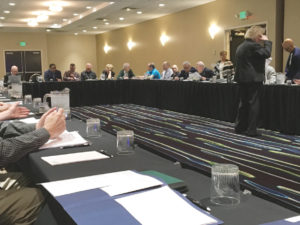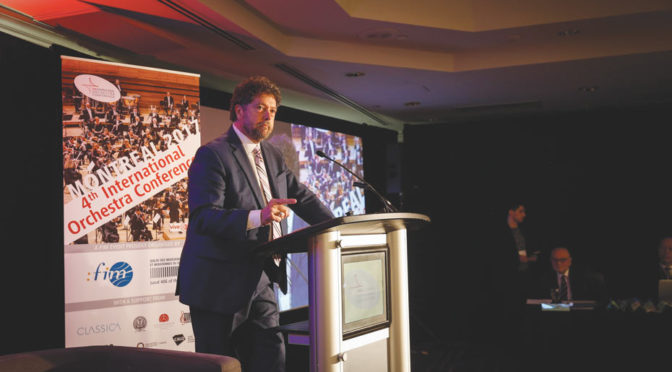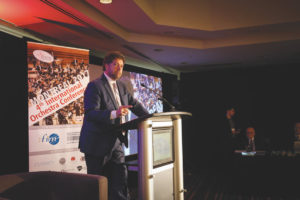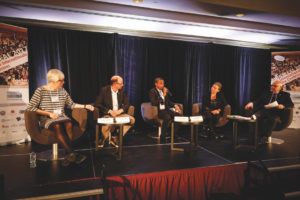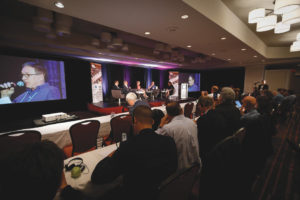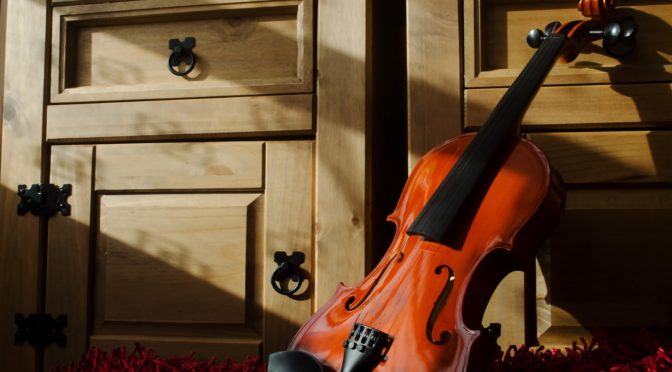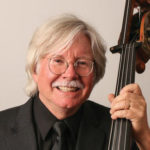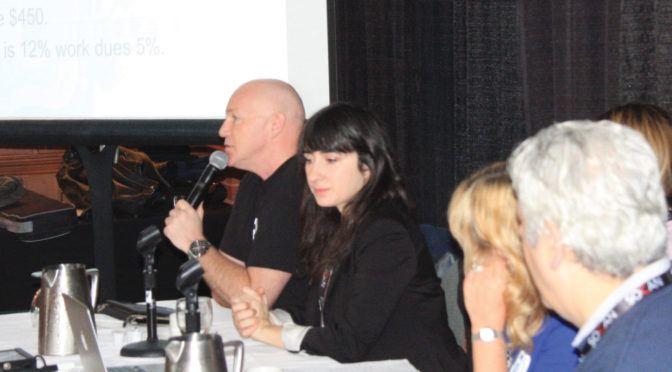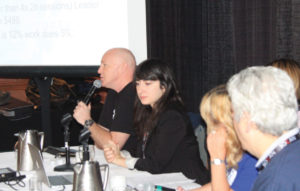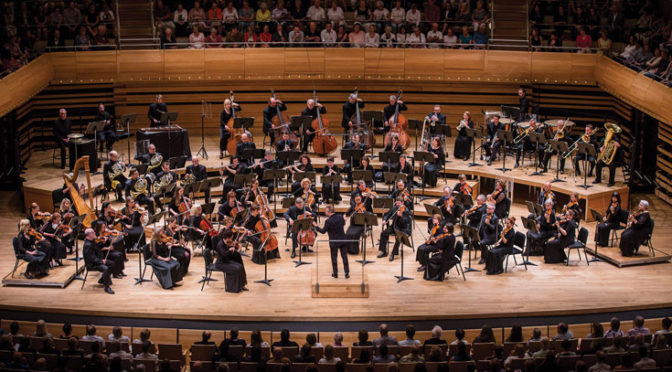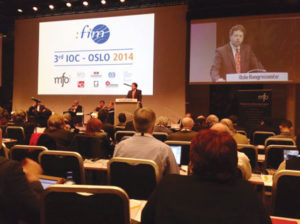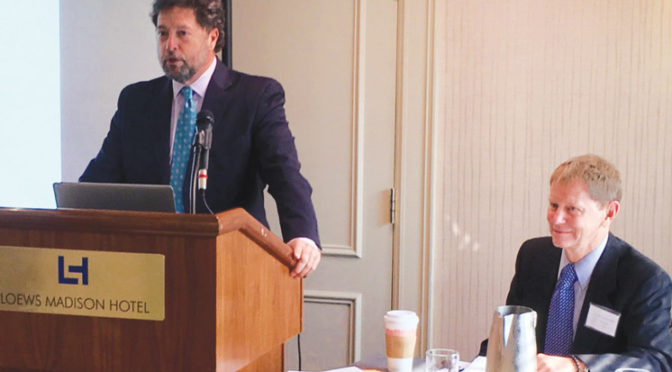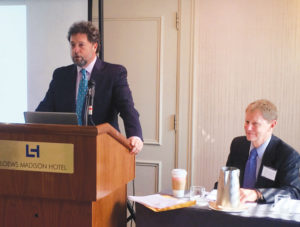by Laura Ross, ICSOM Secretary and Member of Nashville Symphony and Local 257 (Nashville, TN)
The 55th annual International Conference of Symphony and Opera Musicians (ICSOM) Conference, hosted by the Buffalo Philharmonic Orchestra (BPO) and Local 92, was held at the Adam’s Mark Hotel in Buffalo, New York, August 23-26.
ICSOM delegates once again volunteered for a special service event in our host orchestra’s city. This time they partnered with BPO Kids for Exceptional Kids, a program benefiting kids with autism spectrum disorders, cancer, and other chronic physical or health challenges. Thanks to BPO ICSOM Delegate and Member-at-Large Dan Sweeley (of Local 92) for putting this and other conference activities together.
While the “official” beginning of the conference was Wednesday morning, a negotiating workshop led by ICSOM Counsel Kevin Case, a member of Local 10-208 (Chicago, IL) was held Tuesday evening. Before the opening session Wednesday morning, new delegates attended a breakfast to preview what to expect during the conference.
In her first year as ICSOM chair, Meredith Snow (Los Angeles Philharmonic, Local 47) gave the opening address. She reminded delegates that, as our orchestra committees have become stronger, there is a risk that our orchestras may come to view the AFM as a separate entity. But we, the musicians, are the union. We need to uphold the value of our labor and stand up for our colleagues. Individual actions matter. She encouraged ICSOM musicians to reinforce their commitment to their locals, the AFM, and each other. ICSOM is here to help ensure that everyone thrives.
ICSOM President George Brown (Utah Symphony, Local 104) spoke about diversity within the entire orchestral organization—stage, administration, and boards.
AFM Political and Legislative Director Alphonso Pollard reported on various legislative issues, including bills that erode labor protection such as national “right to work” bills proposed in the House and Senate. AFM Symphonic Services Division (SSD) Director Rochelle Skolnick and AFM Negotiator Todd Jelen designed a series of workplace scenarios for delegates and local officers to discuss in smaller breakout groups. A mixer at Pearl Street Grill and Brewery on Wednesday evening offered excellent music, food, and an unobstructed view of a glorious sunset on Lake Erie.
On Thursday, delegates heard reports from officers and others. We were pleased to welcome back two ICSOM Emeritus Presidents—AFM Strike Fund Trustees David Angus (Rochester Philharmonic Orchestra, Local 66) and Brian Rood (Kansas City Symphony, Local 34-627). Rood, who also serves as chair of ICSOM’s Electronic Media Committee, and AFM SSD Electronic Media Director Debbie Newmark quizzed delegates about the types of work covered by the Integrated Media Agreement (IMA).
A presentation by ICSOM Counsel Kevin Case and David Sywak (Dallas Symphony Orchestra, Local 72-147) discussed health care bargaining options. The afternoon was devoted to an AFM and Employers’ Pension Fund (AFM-EPF) presentation by fund trustees, staff, advisors, and counsel. That evening, ICSOM’s annual Town Hall, a closed session for delegates and the governing board, discussed issues of importance.
Case moderated a panel of orchestra leaders—musicians, administrative, conductors, and a mediator—that examined the dynamics of orchestra relations in a discussion entitled “Back from the Brink.” ICSOM provided a luncheon for members-at-large and their orchestra delegates to discuss a broad range of issues. Each member-at-large oversees 13 orchestras. Following lunch, Meredith Snow moderated a panel discussion examining diversity within our orchestral organizations. More than 40 conference attendees went to view the American Falls at Niagara Falls in the evening.
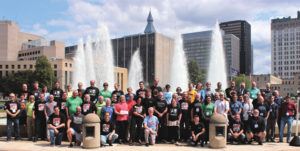
A large group of attendees from the 55th Annual International Conference of Symphony and Opera Musicians (ICSOM) gathered in front of the Adam’s Mark Hotel Fountain in Buffalo, New York. They were wearing T-shirts supporting individual orchestras and arts organizations.
On Saturday, Cypress Media President Randy Whatley provided tips about how musicians can craft a community relations program. Kevin Case introduced a welcome addition to the conference: an open forum for delegates to ask questions of legal counsel.
Delegates adopted resolutions addressing the AFM-EPF, national right to work legislation, implementation of an online conductor evaluation survey, and ICSOM’s response to recent events in Charlottesville, Virginia. Resolutions were also adopted honoring George Brown as he stepped down as ICSOM President, and Paul Gunther of Local 30-73 (Minneapolis-St. Paul, MN) who stepped down as a member-at-large after 11 years, following his retirement from the Minnesota Orchestra.
Paul Austin (Grand Rapids Symphony, Local 56) was elected ICSOM President and ICSOM Secretary Laura Ross (Nashville Symphony, Local 257) was re-elected. Kimberly Tichenor (Louisville Orchestra, Local 11-637) and Martin Andersen (New Jersey Symphony Orchestra, Local 16-248) were elected to two-year member-at-large positions; Greg Mulligan (Baltimore Symphony Orchestra, Local 40-543) was elected to a one-year member-at-large position.
Many thanks to the Buffalo Philharmonic Orchestra and Local 92 President Jim Pace for a wonderful conference. The 2018 ICSOM Conference will be held in Cincinnati, Ohio, August 22-25.


